
DBA Roundup
A roundup of industry expertise, exclusive resources, business support and tools for your design business.
We’re working with the Department for International Trade (DIT) to identify ‘Export Champions’ amongst you, who can lead by example and help spark a movement around the UK of companies selling their products and services overseas, to help drive growth of the UK economy.
Through our work over the coming years, we will also be supporting you to expand your reach internationally into new markets and for those of you who are yet to embark on overseas trade, helping you prepare your business to successfully export.
Export Champions are everyday businesses of all shapes and sizes from around the UK who are proudly selling overseas.
They form a nationwide network of UK companies that are ambassadors for exporting; sharing success stories, offering practical advice and leading by example.
They are being recruited as part of the Department for International Trade’s Exporting is GREAT campaign. The campaign centres on raising awareness of the benefits of exporting, informing companies where they can go for support, and inspiring more of them to start trading internationally – or to expand their current reach. Exporting is GREAT aims to spark a movement around the UK of companies selling their products and services overseas.
The aim is to inspire UK businesses and show that whilst exporting may not always be easy, the obstacles can be overcome and the results are worth it.
If you would like to get involved and be part of the campaign, you can sign up via a short form here https://bit.ly/EIGsignup
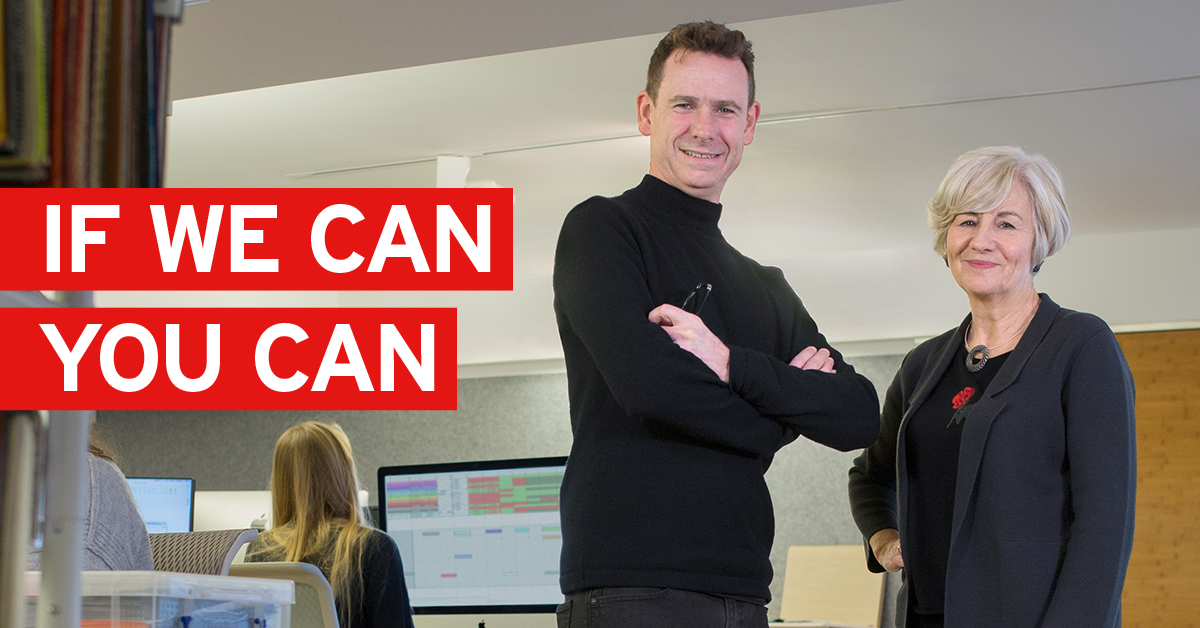

Access a variety of guides, advice and case studies to help your design business successfully export. Go to DBA Resources and select ‘International trade’.










The report launched in Birmingham, to coincide with the Conservative party conference, with the event attended by delegates from across education and the design and technology sector; teachers, students, business owners from across the nation heard keynote speeches from the DBA’s Chief Executive Deborah Dawton, DATA Chief Executive Tony Ryan, as well as several panel discussions.
Discussion throughout the day was wide-ranging, with keynote speakers and panelists highlighting the tangible risks resulting from the current state of education policy. In her keynote address, Deborah Dawton cited cuts in schools’ funding, decline in student uptake of creative subjects, low morale amongst design and technology teachers, and significant gaps between the skills students are developing in learning and the skills required in junior staff by the industry.
And it’s not only the design, technology and creative industries affected by this policy. Tony Ryan, Chief Executive at DATA cited anecdotal evidence from the medical industry regarding concerning drops in manual dexterity skills evident in each new cohort of students entering medical school, a direct result of children not having had access to the art of making, gained from creative education.
The panel agreed that a core problem with the English Baccalaureate (EBacc) is that by defining one list of subjects as important, you automatically consign others as not as important. With Andrew Churchill of JJ Churchill posing to the panel that the EBacc is setting the Design and Technology world at odds with the academic.
Deborah Dawton agreed, highlighting a fatigue with the idea of pitting academia and design against each other.
“Why is it that academia is the first option, and students who don’t excel in that are filtered into creative subjects? In the economy and society of the future, creativity and creative skills will be the skills that aren’t automated. Let’s flip the argument on its head and give creativity the same footing as academia. The DBA is calling for equality of opportunity through a fair and equal education system where students have a fair choice of what they study.”
Jack Tindale, Manager of the APDIG, said “design doesn’t exist in isolation, it needs more integration between technical and academic qualifications.”
Andy Mitchell, ex-deputy chief executive, DATA, “While our education system supports the teaching of the natural world through science, we also live in a designed and made world and that same system is working hard to educate designing and making skills out of students.”
Solutions for how to close the widening gap between eduction and industry were discussed, with businesses such as DBA member Michon Creative actively working with schools and universities to secure their talent pool. Mark Fensom discussed Michon’s approach of actively engaging university placement students through student placement programmes and dialogue between lecturers and students to explain the commercial reality of what business needs from graduates. Mark highlighted this “closer relationship with education” as vital to ensuring student talent has the skills industry needs.
Students from a range of schools were also in attendance, showcasing the creative digital and technical skills from CAD CAM through to robotics, 3D printing and examples of iterative design solutions, skills they’ve developed through their schools’ design and technology programmes.
Sixth form students from from Finham Park School in Coventry highlighted the value they have already derived from their design and technology classes, with students, Will and Taboor telling us “D&T gives me quite varied skills, and even helps with skills in different areas like English and Maths.”
“I enjoy it more than any other subject because it allows me the freedom to do what I want to do, rather than being told. For me, design and technology kind of binds it all together.”
With industry and the education sector so closely aligned to supporting the equality of opportunity through education, and for all young people to be able to access it, the next step is to more actively engage government and policy makers.
We’ll continue to work closely with DATA and the APDIG to ensure the recommendations in the report are carried forward with the collaboration of industry and government.
We began this work over the Summer with the pilot programme, Teachers in Residence, together with the John Sorrell Foundation. The pilot saw teachers embedded into design studios across the country to gain a firsthand understanding of how the design industry of the 21st Century operates, and what it needs from its talent.
We’re looking at how to work to scale, to secure better working relationship between universities, schools and businesses, joining up teaching, learning and industry while continuing to engage government on the issues.
Recommendations for the report came from valuable roundtables held with DBA members over the summer period that discussed education at all levels and the impact of a skills deficit on the industry. Thank you to those DBA members that took part.
Alongside the Apprenticeship Levy, the government should allow firms that engage with universities and colleges – by providing speakers, guest lecturers and work placements – to claim tax relief
This would help firms in the sector to expand, increasing employment and allowing for the provision of more apprenticeships and Year-in-Industry courses.
Introduce a design-focused research and development tax credit to encourage investment in design and design skills
Trial and error is a fundamental aspect to the design process, but the cost is a barrier. The government should extend the remit of the successful Research and Development Tax Credit to all firms that use design to achieve productivity increases and workforce expansion.
Incorporate design thinking into other subjects
Design is a way of looking at problems and finding solutions; the Government should incorporate it into all other subjects – ranging from programming to ethics.
Include creative subjects as a core subject in the English Baccalaureate
The government needs to acknowledge the importance of design and technology to the wider skills pipeline. The EBacc should require a creative subject, to ensure that all children are introduced to humanities, natural sciences and creativity.
Increase the diversity of the workforce by promoting design education amongst minority and underrepresented groups
The exclusion of creative subjects from the EBacc has reversed years of improved participation by under-represented and low-income students in the design industry.
Government and educational establishments should work to improve the attractiveness of the sector to minority groups to ensure that design exploits the creativity of our diverse Britain.
Encourage access to design and craft training through training programmes and careers information, guidance and advice
Design thinking and craft is vital across all professions. Training programmes and careers information, guidance and advice should incorporate these to a far greater extent.
Ensure that T-Levels meet the standards required by industry
T-Levels have the potential to transform how people enter the design sector, increasing participation from under-represented and low-income students. However, as design and manufacturing becomes increasingly focused on new and emerging technologies, it is vital that vocational qualifications are treated as equal partners to traditional A-Levels. Students embarking on this pathway must be given the training and education required to achieve the careers they aspire to.
Promote training and knowledge sharing between higher education, further education and industry bodies
Design is an industry of collaboration – however, many academics and industry members agreed there is disconnect between the demands of industry and the content of university courses. The sectors should develop better links, engagement and figureheads/case studies to give students a clearer pathway into industry.
Offer summer placements to design firms for teachers
Teachers benefit from practical observations of how the design sector works. Firms could showcase new and emerging developments in industry to schools, helping to inspire lesson plans that include the most recent developments in the sector. The Sorrell Foundation has trialled the benefits of this in the summer of 2018 with a small pilot, supported by the Design Business Association and Design and Technology Association.
Develop a task force of design advocates to promote the value of design across the country
Designers play a central role in the manufacturing and digital sectors but their contribution is ignored by both the mass media and policy makers. The industry should create a network of designers to inform the wider community of the importance of design, raising the profile of the sector and its attractiveness as a career.
Read the report in full here.
Radio 4 Front Row podcast: The current state of arts education, Wednesday 14th November
“In the last decade the number of GCSE’s taken in creative subjects have declined across Northern Ireland, Wales and England by 20%.”
Stig Abell chairs a live discussion at Soar Valley College secondary school in Leicester, with leading figures in arts and education.
Discussion features Deborah Annetts, Chief Executive of Incorporated Society of Musicians, Trina Haldar, graduate in chemistry and engineering, and director and founder of Mashi Theatre, Leicester, Branwyn Jeffreys, BBC’s Education Editor, Mark Lehain, interim head of the New Schools Network, Julie Robinson, headteacher of Soar Valley College and Carl Ward, Chief Exec of City Learning Trust.
Towards a twenty-first century education system: Edge future learning
“Decimation of arts subjects in schools is impacting on science and and medicine – trainee surgeons can’t sew!”
The Edge foundation’s report, launched in October, explores the impact of squeezing arts education out of core study, and how this not only impacts the creative industries, but also vital industries such as the sciences. The report argues that creativity should be at the heart of all learning.










Held up and down the country this year, our ‘DBA members discuss…’ events have explored how design agencies tend to be different from many other owner-managed businesses.
The events have unpacked the attributes of design businesses, exploring the correlation between these and the characteristics outlined in Bo Burlingham’s Small Giants book and how, by understanding and nurturing these nuances within your own business, you can help to positively shape its future.
One key characteristic of Small Giant businesses is that their leaders see beyond the standard definitions of success (money and size) and look to explore bigger choices in the development of their business and the way they work.
At the Manchester ‘DBA members discuss…’ event, the BBC’s Ray Mosley and DBA Expert Ralph Ardill discussed the greatest qualities of creative leaders and what sets them apart from the rest.
Ray, who is the Executive Product Manager for Interactive TV at BBC Design & Engineering, spoke about how he believes a problem in leadership within the creative industries is the ownership of an idea. Ray believes great leaders let go of ‘things’ and concentrate on collective outcomes. To do this leaders are responsible for ensuring everyone understands the context of the situation. If everyone has an understanding of the constraints, the business goals, the KPIs, the context in which they are working, then the creative outcomes will be a better fit.
Ray highlighted two lessons he has learnt from being in a leadership position at the BBC:
 Leadership is not purely facilitation. You can give your team autonomy and help them do their jobs to the best of their ability, but you also need to give guidance where it is needed. And as mentioned, make the difficult decisions.
Leadership is not purely facilitation. You can give your team autonomy and help them do their jobs to the best of their ability, but you also need to give guidance where it is needed. And as mentioned, make the difficult decisions.
Brand experience specialist and former Marketing and Strategic Planning Director at Imagination, Ralph Ardill drew on the wolf pack analogy –
When travelling over a long distance the leaders of the pack travel at the back. The leaders are able to make decisions with the perspective of everything they see in front of them. They are able to slow the pace to support an individual who is struggling, but they can also make the quick and ruthless decision to cut out a struggling individual once they think they are beyond salvaging and a detriment to the pack as a whole.
In response to the question “What are the greatest qualities of a leader?” Ralph Ardill replied “integrity” and “accountability”.
To have people buy into your vision, to follow your lead, you need integrity. They have to believe that you believe in what you say, that you will do what you say and live your ideals. If you say one thing, but do another you lose your integrity. Your team will not know where they stand with you and your business will flounder.
Accountability is the bond of trust between buyers and sellers. For an industry that sells ideas, accountability is key. Great leaders are able, not only of selling the idea, but also of managing the risk involved in implementing that idea. Our industry is all about transformational change, which is inherently risky. Leaders are accountable, not just for the great creative work their teams produce, but also identifying where the risk points are and addressing them head on.
Ray Mosely built on these two points, “Trust is an equation of consistency over time. When time is limited accountability builds trust.”
He gave the example of Swedish Spotify founder Daniel Ek who persuaded the Swedish music labels to give him the licenses to play their music. By pointing out the reduction in sales due to download piracy, he offered to pay the difference to stream their music. He mitigated their risk by making himself accountable for the shortfall. Spotify has not looked back since.

Five staff? Ten staff? Five hundred staff?
What is clear from the event discussions, is that the size of your team doesn’t matter. It’s the outlook of the business that counts: a drive to be the best they can be at what they do, to create a stimulating place for their staff to work, to provide great client servicing, to make a wider positive impact beyond simply their own financial gains.
It’s these characteristics that set many design businesses apart and align them with the Small Giants characteristics. Purposely small agencies like Supple Studios, agencies with a wide international reach like Elmwood and even companies like Arup (with 13,000 employees) have discussed at the events how they relate to the ethos of Small Giant businesses.
Simon Barbato, CEO of Mr B and Friends – a 40-person agency – spoke at the Bristol event, of a pod-system they were trialling throughout this year which would enable them to be a larger business, but maintain an entrepreneurial approach. They were only three months into the trial at the time, so we caught up with Simon again this month, to see how it was panning out.
You’ve been trialling a pod system at Mr B and Friends this year – why did you decide to introduce this?
Simply, as we had grown, we had introduced layers of process and agency management which was getting in the way of delivering what clients truly value from us: great work, responsive service, fair remuneration. We needed to return to the agility we had when we were a 10-12 person agency.
Who’s involved in the pods and how do they operate?
In each Pod we have around eight people: Pod is led by a senior client services, creative and planning person. Backed up with designer, art director, copywriter and account management. Pod resources are augmented by freelance and ‘floating’ talent: artworkers, senior management and junior creatives.

How has it impacted on your business?
Agility has returned. We no longer have gun fights between Account Directors at the scheduling meeting, meaning that each Pod acts like a micro business within the larger agency infrastructure.
It’s delivered closer working relationships with clients and greater exposure across the Pod to the client business – rather than just client service.
Responsibility and team work has increased as the smaller teams search for quality and competitive commercials across revenue and profitability.
It’s still a work in progress and we’re still ironing out issues, knowledge gaps etc, but it’s definitely a model that will help us to scale beyond the current number of 40 without losing quality, responsiveness etc.
And the reaction from clients?
Great! They really love the fact that they have more agility, better access to the team and arguably better value from us.
How integral is the pod-system now, to the future plans for your business?
Very. It will help us to scale in a structured way. It may be a good model for acquisitions to be on boarded into the agency and ensure business as usual without the usual mergers and acquisitions disruption, and of course if we have a big project, we could establish a pop-up Pod.
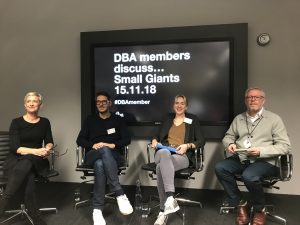
At the London event last week, industry expert Michael Thomson pointed out how many different definitions of ‘growth’ people have and that within a business you have to be honest with your partners on what your idea of growth is.
At the Midlands event, Paul Brammer, MD at Exesios explained why instead of replacing two members of staff who had left the business, they decided not to continue working with their largest client, which had turned out not to be a very profitable relationship. As a result, profitability at Exesios leapt from 17% to 34%.
Having a firm handle on how and why you grow is fundamental, and this excellent article by David C Baker offers some clear perspective and pointers on this.
 Whilst being profitable is key to being a well run design business, other drivers are also paramount to how many members view their success and impact.
Whilst being profitable is key to being a well run design business, other drivers are also paramount to how many members view their success and impact.
We’ve been left especially inspired this year from hearing how DBA members are working with and for their local communities for far-reaching, meaningful effect. Thompson Brand Partners’ initiative, which their owner and CD Ian Thompson talked about at the Leeds event, is particularly heart warming.
Three years ago Thompson Brand Partners helped to found a community cinema with the express wish of getting elderly local residents, many of whom have lost their partners, out at least once a month. Sometimes some ideas can snowball and three years on and they sell out every month with 150 visitors.
 Thompson Brand Partners are based in a residential area in Leeds and have always felt a part of the community. For Owner and Creative Director Ian Thompson, this engagement is “simply good citizenship and it stops you feeling separated and in a different world to everyone else around you.”
Thompson Brand Partners are based in a residential area in Leeds and have always felt a part of the community. For Owner and Creative Director Ian Thompson, this engagement is “simply good citizenship and it stops you feeling separated and in a different world to everyone else around you.”
Ian explains of the cinema nights, “It’s strictly old school but with new technology. We deliver a proper big screen experience with good sound and a proper screen and projector. But we have an interval, so people can mingle and we’re happy for people to take their drinks into the auditorium. The fact people now expect it, is really the key to its sustainability and we really enjoy being involved.”
“No man is an island, neither is our design agency! Joining the DBA has connected us with the invaluable experience of others, provided us with all-important benchmark data, and most of all, given us something vital: Community. ” Anton Van Shandwick, Director, Creative Coup
Keep an eye out for future ‘DBA members discuss…’ event dates around the UK and join us and your fellow members for insightful discussion, debate and networking, to enrich your business.
Image credits:
marcos luiz | Unsplash
Ray Hennessy on Unsplash
Mr B and Friends
Thompson Brand Partners










 The Duke of Cambridge recently launched ‘Mental Health at Work’ a new initiative from Heads Together and Mind. But, while it’s a huge step towards improving mental health in the workplace, it came alongside some shocking statistics. Hundreds of thousands of people lose jobs as a result of poor mental health, which equates to companies losing valuable staff, purely because they’re not equipped to deal with or support mental health problems. Only 2% of people said they’d feel comfortable talking to HR about their mental health, and as Mind’s research shows, a quarter of British people sit at work, suffering in silence.
The Duke of Cambridge recently launched ‘Mental Health at Work’ a new initiative from Heads Together and Mind. But, while it’s a huge step towards improving mental health in the workplace, it came alongside some shocking statistics. Hundreds of thousands of people lose jobs as a result of poor mental health, which equates to companies losing valuable staff, purely because they’re not equipped to deal with or support mental health problems. Only 2% of people said they’d feel comfortable talking to HR about their mental health, and as Mind’s research shows, a quarter of British people sit at work, suffering in silence.
But at Rufus Leonard the stats are pretty different. We found that 91% of staff feel comfortable talking to HR, 85% of employees know who to turn to if they have a mental health issue, and the same amount know that Rufus cares about their wellbeing.
Happiness and health are, without question, two of the most important things for humans to have; and for years businesses have been trying to introduce ways to make sure employees have both. To be clear, this isn’t in terms of health insurance or receiving an annual bonus to make you happy – rather, it’s about mental wellbeing. It means ensuring that day-to-day we’re feeling the best we can – not burnt out, run down, anxious…
Of course, the scope of problems is huge and just like most things, there’s no one-size-fits-all. Some people may only feel stress during certain periods of their lives, for others it can be a daily battle; there are over 200 recognised mental illnesses, so there’s probably at least 2,000 things that could be done to tackle these, and we can’t be expected to do all of them in the office. Considering we apparently spend a massive 90,000 hours at work during our life time, however, we can at least do our best to cover as much ground as possible. Which is what we at Rufus are trying to do – and, if our stats are anything to go by, it seems like we’re doing a pretty good job.
So how do we do it – and how can you?
At Rufus, we’ve got a pretty extensive list of things we’re doing to ensure our staff are their happiest and healthiest.
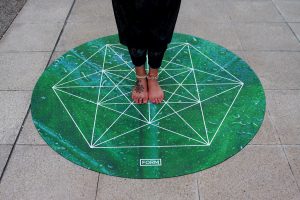 Of course, there are popular choices like yoga and meditation. Where once yoga was considered just a fad, you probably won’t find a gym in the UK now that doesn’t have a regular class. And it’s seeping its way into workplaces, too. With yoga and meditation proven to ease the symptoms of depression and anxiety, there’s no doubt that regular sessions throughout the week will do a world of good for staff’s wellbeing, so we’ve introduced yoga sessions and a designated meditation room here at Rufus.
Of course, there are popular choices like yoga and meditation. Where once yoga was considered just a fad, you probably won’t find a gym in the UK now that doesn’t have a regular class. And it’s seeping its way into workplaces, too. With yoga and meditation proven to ease the symptoms of depression and anxiety, there’s no doubt that regular sessions throughout the week will do a world of good for staff’s wellbeing, so we’ve introduced yoga sessions and a designated meditation room here at Rufus.
Like we said, though, no one size fits all. Sometimes things can’t be soothed by an exercise class (it’s certainly not a wholly adequate replacement for traditional forms of therapy), and much more needs to be done.
The most important thing, and indeed the first step necessary into making your workplace as happy and healthy as possible, is getting Board and Senior level staff involved. There are countless training and consultancy courses designed to better equip management to support staff who are struggling, and even a couple of days spent on these courses could do wonders for an organisation. This isn’t suggesting that all bosses need to become licensed therapists, but they should be willing to expand their understanding.
It’s also worth having advocates throughout the business – whether these are people who put on talks and courses, or just people who are trusted, and can act as a go-to if someone needs to talk. Here, we implemented just that, with Project Director Rosie Lee being appointed as our very first Mental Health First Aider, with the view to more joining her. While HR are always available to speak to, it’s important that other people are on hand to help staff feel comfortable talking about mental health issues. It’s a simple, but massive step, and one that will hopefully make our already hugely positive stats even better.
Sometimes someone to talk to isn’t even what’s needed, but rather just some downtime. And in gaining an understanding how staff might be struggling, it’s likely management will be more on board with implementing classes or sessions during the work day, approving mental health days, and advocating for a more flexible working environment to benefit staff who may be suffering. As a result, staff will be more willing to have an open conversation, but as flexibility increases, pressure is likely to ease off, and what businesses will actually see is an increase in productivity and a decrease in sick days. Take Kirk’s story, as told by Heads Together as a prime example.
Flexible working is arguably one of the most important things businesses can make available – and not just for parents and carers. As Mentalhealth.org explains, people with ongoing mental health problems meet the Equality Act and Disability Discrimination Act’s definition of disability – and are therefore entitled to reasonable adjustments to their job/workplace.
Reasonable adjustments can include:
Once again, these might not work for everyone, but taking conversations with staff on board, and listening to how they feel they can be supported, means these adjustments can be tailored to create the best possible outcome for everyone.
Then there’s smaller things – freezers stocked with ice creams, free fruit throughout the week, dogs in the office, hungry days (where we’ll support staff in going out to events that will further their career development), regular social gatherings… Sometimes it’s the bigger things that matter, but sometimes, tiny gestures make all the difference necessary to feel a whole lot better.
We’re still figuring out the best way to help employees with mental health and wellbeing – it’s a work in progress and there will be a lot of trial and error along the way. What we do know, however, is that people are talking – and that’s a massive step forward.
 Here’s a full list of things we do at Rufus to help with health/happiness:
Here’s a full list of things we do at Rufus to help with health/happiness:
Healthcare
Ice creams
Hungry days
Social gatherings
Discounted gym membership
Discounted visits to the dentist
Manicures
Massages
Flexible working (for all everyone)
Mindful colouring in
Yoga
Cycle to work scheme
Open door policy with HR
Working environment
Regular reviews for staff
Family planning survey (to see how people really feel)
Ad hoc things (e.g. giving out cool spray during the hot summer we’ve just had)
A week-long plan for mental health awareness week including Tea & Cake with TED talks, yoga, a designated room for meditation, origin stories addressing mental health, smoothies, a place for people to feel comfortable sharing information and stories about mental health
Dogs
Free fruit each week
Working with NABS
Opportunities to volunteer
Boxing club
*Source: Mind, the mental health charity
DBA Twenty/Twenty pairs rising industry leaders with established design pioneers for a 12-month one-to-one mentoring relationship. Applications for the 2019 programme are open until 23 November 2018 so why not think about what you need right now, or what you can give. Find out more and apply.










 With one in five Brits now regularly shopping in the free-from section and with the dairy-free market growing at a rapid rate, Dairy Crest’s Vitalite was in a prime position to take a portion of the market, but the opposite was happening. Vitalite had been the number one selling dairy-free spread for many years, but Pure had taken over. With new competitors coming to the market, such as LactoFree and Koko, Vitalite was losing relevance.
With one in five Brits now regularly shopping in the free-from section and with the dairy-free market growing at a rapid rate, Dairy Crest’s Vitalite was in a prime position to take a portion of the market, but the opposite was happening. Vitalite had been the number one selling dairy-free spread for many years, but Pure had taken over. With new competitors coming to the market, such as LactoFree and Koko, Vitalite was losing relevance.
The problem for Vitalite was that most people thought of it as a sunflower spread; the one behind the catchy jingle from the 1980s advert. They didn’t see it as a dairy-free spread, but that’s exactly what it is. To reach the younger, health-conscious audience, they needed to embrace their dairy-free credentials, which for years had been seen as a necessary compromise. Collaborating with BrandOpus on a new identity and pack design, they looked to build brand equity within the growing dairy-free sector, whilst ensuring they didn’t put off their existing, loyal consumers.
Key objectives:
 Vitalite already had a joyful brand image – thanks, in part, to the trappings of its 80s advert. It gave them the ideal platform to celebrate the dairy-free message. Sunshine had long associations with the brand, but by moving away from the cartoon-like character of the sun on the old pack, and embracing the vitality of sunshine with a new illustration, they promoted the natural and positive lifestyle choice of Vitalite being dairy-free. This continued throughout the design with the painted texture creating a natural feel. They also elevated the dairy-free description to the brand identity itself, making it the overarching selling point.
Vitalite already had a joyful brand image – thanks, in part, to the trappings of its 80s advert. It gave them the ideal platform to celebrate the dairy-free message. Sunshine had long associations with the brand, but by moving away from the cartoon-like character of the sun on the old pack, and embracing the vitality of sunshine with a new illustration, they promoted the natural and positive lifestyle choice of Vitalite being dairy-free. This continued throughout the design with the painted texture creating a natural feel. They also elevated the dairy-free description to the brand identity itself, making it the overarching selling point.
Overall, the new design is much more contemporary, whilst remaining distinctly Vitalite with its green and yellow colours that help maintain the recognition of existing customers, and ensure stand out on the fixture.
Headline results:
The results speak for themselves. The rebrand has attracted new customers, driven penetration and increased value and volume sales growth. Perhaps most significantly, Vitalite regained its position as the number one dairy-free spread in the UK, gaining 17% more volume than Pure.
Since rebranding, Vitalite has successfully reached a younger audience. In the year after launch they saw 150,000 new households trying out the product, and 1.2 million households buying it overall. Its penetration increased by 12%, despite an aggressive competitor landscape and Vitalite’s value grew by £508,000 – that’s up 11.6%.
Off the back of the success, Vitalite is now producing another dairy-free spread: Coconut, which has brought new consumers to the market. This promising variant is strengthening their number one spot in the dairy-free spread category.
BrandOpus and Dairy Crest won a Gold DBA Design Effectiveness Award for the rebrand of Vitalite. You can read their winning case study in full here.
 A DBA Design Effectiveness Award win represents independent and authoritative recognition of the value of your work and will enable you to powerfully demonstrate your ability to deliver competitive advantage through design.
A DBA Design Effectiveness Award win represents independent and authoritative recognition of the value of your work and will enable you to powerfully demonstrate your ability to deliver competitive advantage through design.
The 2019 Entry pack is now available at: effectivedesign.org.uk The entry deadline is: 5pm GMT, 30 November 2018










The Raspberry Pi Foundation’s mission is to put the power of digital into the hands of people all over the world, by providing small, high-performance computers costing just $35, along with resources and training to help people learn about computing.
The Foundation’s Raspberry Pi is the third best-selling computer of all time – behind only Apple and Microsoft. Only the size of a credit card, it’s a small piece of hardware and software that connects to a power supply, mouse, keyboard, display and internet to become a fully functioning computer. It’s a cheap and practical solution for people around the world.
What it needed was a case. This needed to be both functional and elegant to sell as an appealing product. The design also needed to meet some specific requirements: to be simple to assemble with no fixing screws, low cost, appeal to all sorts of audiences, transportable and accommodate a range of inputs. It also had to embody the ethos of the foundation’s mission, showcase the Pi as the hero by providing visibility of the printed circuit board and, ideally, be produced in the UK.
 The solution is a set of six high-quality moulded parts that are held together with spring clips. It acts as a roll cage, protecting the pcb (printed circuit board) while providing open access to connectors on the board. A transparent light pipe also lets you see the status indicators. It also has ‘knock-out’ features that allow it to be wall mounted.
The solution is a set of six high-quality moulded parts that are held together with spring clips. It acts as a roll cage, protecting the pcb (printed circuit board) while providing open access to connectors on the board. A transparent light pipe also lets you see the status indicators. It also has ‘knock-out’ features that allow it to be wall mounted.
From an aesthetic point of view, it is friendly, fun and sleek, mirroring the Raspberry Pi brand. It communicates the clever simplicity of the brand and product, and encourages adaptation and learning. And costing just £6, it helps the brand to maintain its low-cost selling point.
“Every time the Pi is photographed now, it’s in the case. It’s beautiful enough to become every bit associated with Raspberry Pi as the bare pcb”, says Eden Upton, CEO of Raspberry Pi. This is particularly important for the foundation as it helps to maximise reach of the products, which is essential for a charity aimed at helping more and more people become computer literate.

Reviews have shown that the case has been received tremendously well, and it is being used in various configurations. Although it wasn’t the aim to become a brand, the case has strengthened Raspberry Pi’s position by creating a distinct and recognisable visual identity, helping to assert its brand as a leader in an increasingly active hobbyist/maker market.
In just two years from launch, 861,460 Raspberry Pi cases were sold. And encouraged by the success of the case, an even smaller one was developed. Named the Pi Zero Case, it has three alternative lids and sold 130,000 units in just two months from launch. Together the cases generated a total profit of over £725,00 for the Foundation between May 2015 and May 2017.
Since then, sales of the cases have continued to grow, creating longer-term security for the Foundation. Commenting recently, Raspberry Pi’s Director of Engineering, Gordon Hollingworth says, “With over 2 million now sold, the Official Raspberry Pi Case has been more successful than we dared hope. Its affordable beauty embodies the brand, its flexible functionality helps us reach more users, and its commercial success provides a valuable financial contribution to the on going work and mission of the Raspberry Pi Foundation.”
A DBA Design Effectiveness Award win represents independent and authoritative recognition of the value of your work and will enable you to powerfully demonstrate your ability to deliver competitive advantage through design.
The 2019 Entry pack is now available at: effectivedesign.org.uk The entry deadline is: 5pm GMT, 30 November 2018
Kinneir Dufort and Raspberry Pi won a Gold DBA Design Effectiveness Award in 2018.
“We have always placed a high value on the Design Effectiveness Awards because of the hard measures of success on which they are judged, but also because they recognise the necessary spirit of collaboration and partnership between client and design teams on which all successful projects depend.” Craig Wightman, Chief Design Officer, Kinneir Dufort
“We were delighted to receive a Design Effectiveness Gold Award as robust third party vindication of our decision to invest in design.” Gordon Hollingworth, Director of Engineering, Raspberry Pi










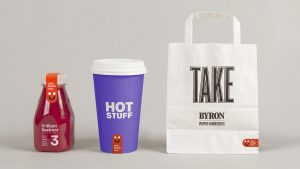 In 2014, JP Campbell, a man with a soup van in Edinburgh, had an idea that would help tackle child hunger in poorer areas. What if hunger could feed hunger? This was the very question that led to the birth of One Feeds Two – a model that saw JP donate school meals to children in poverty for every soup he sold. Yet, despite JP delivering 40,000 school meals through his sales, he was determined to scale the concept in order to feed more of the 66 million children who go to school hungry everyday worldwide.
In 2014, JP Campbell, a man with a soup van in Edinburgh, had an idea that would help tackle child hunger in poorer areas. What if hunger could feed hunger? This was the very question that led to the birth of One Feeds Two – a model that saw JP donate school meals to children in poverty for every soup he sold. Yet, despite JP delivering 40,000 school meals through his sales, he was determined to scale the concept in order to feed more of the 66 million children who go to school hungry everyday worldwide.
Recognising that this was a mission too big for one person, JP partnered with The Clearing in order to help One Feeds Two snowball and raise awareness among consumers to deliver a mighty one million meals. Furthermore, the goal was set to engage one national food company and one retail chain to adopt the One Feeds Two mark within their own business models.
However, the team and JP were faced with several barriers. Firstly, One Feeds Two needed a clear unifying positioning as the concept was being articulated in a number of different ways, and its language needed to be more motivating and memorable. On top of this, One Feeds Two was caught within the congested charity sector – a sector in which many find they are discouraged by common guilt trip tactics that tug on people’s heartstrings.
What followed was a complete rebrand of One Feeds Two that transformed an old design that was too literal, lacked stand-out and confidence, into a clear symbol of quality – the smile.
Not only was the smile logo placed across all packaging and media to help promote One Feeds Two’s concept, it also challenged the guilt-tripping notion of the not-for-profit industry. Instead, the logo represented the good side of giving and highlighted how even the smallest actions, such as buying a meal, can have far-reaching positive impacts.
The new brand identity soon convinced national food company Cook to adopt the concept within its own business model, and after spotting One Feeds Two’s eye-catching design on The Clearing’s Facebook, Byron Hamburgers also jumped at the opportunity to become a partner. Relationships with Higgidy Pies and Mindful Chef were also developed, with 73% of the school meals delivered attributable to partnered companies.
 Awareness for One Feeds Two has gone through the roof. Website visitors increased by 291% in the first three months after brand launch. Facebook followers and page views increased by 20% and 170% respectively.
Awareness for One Feeds Two has gone through the roof. Website visitors increased by 291% in the first three months after brand launch. Facebook followers and page views increased by 20% and 170% respectively.
Most importantly, in the first three years after the brand relaunched, 2 million school meals were delivered versus a target of 1 million – and this figure now stands at 3.7 million in 2018. Over, 10,500 children have been put through school because they are no longer spending their days working or searching for food.
In the words of Sir Richard Branson, One Feeds Two is “a great example of using business for good”.
 A DBA Design Effectiveness Award win represents independent and authoritative recognition of the value of your work and will enable you to powerfully demonstrate your ability to deliver competitive advantage through design.
A DBA Design Effectiveness Award win represents independent and authoritative recognition of the value of your work and will enable you to powerfully demonstrate your ability to deliver competitive advantage through design.
The 2019 Entry Pack is available at: effectivedesign.org.uk The entry deadline is: 5pm GMT, Friday 30 November 2018
“The DBA Design Effectiveness Awards celebrate powerful, commercially successful design – it’s design that means business.”
Richard Buchanan, MD and Founder, The Clearing
The Clearing and One Feeds Two won a Gold DBA Design Effectiveness Award. You can read the full case study here.










 Although Hagkaup was the fourth most popular food retailer in Iceland, it faced a threat from increasing popularity of discount stores and Costco joining the Icelandic market in 2017. Shopper behaviour was also changing with people visiting supermarkets more often but buying fewer items in each trip.
Although Hagkaup was the fourth most popular food retailer in Iceland, it faced a threat from increasing popularity of discount stores and Costco joining the Icelandic market in 2017. Shopper behaviour was also changing with people visiting supermarkets more often but buying fewer items in each trip.
Hagkaup partnered with M Worldwide to revisit its flagship store proposition, customer experience and environment to meet customers’ new shopping needs and fight off increasing competition. Not only this, but the flagship store’s footprint was reducing by almost 50% as a result of the supermarket’s business strategy to lower fixed costs, but use remaining square metres ‘smarter’ to maximise the profit of each and every one.
Business objectives:
Despite the reduction in the store’s footprint, the new proposition needed to help Hagkaup Smaralind maintain the following versus the previous year – especially since there would be no other marketing support:
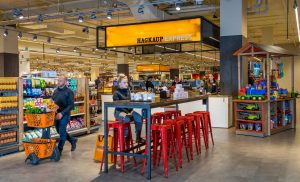 Taking inspiration from department stores to bring more theatre to the supermarket, with distinct zones, places to dwell and seasonal displays, the redesign has been so successful that the concept will be applied across other stores. Through the environment, customers tangibly experience the product variety and exceptional service and special moments of activity in ‘hotspots’ throughout the customer journey ensure plenty of theatre to surprise and delight. At its core, traditional supermarket principles are swapped with the best of department store showrooming to encourage greater dwell time and smaller, more frequent visits.
Taking inspiration from department stores to bring more theatre to the supermarket, with distinct zones, places to dwell and seasonal displays, the redesign has been so successful that the concept will be applied across other stores. Through the environment, customers tangibly experience the product variety and exceptional service and special moments of activity in ‘hotspots’ throughout the customer journey ensure plenty of theatre to surprise and delight. At its core, traditional supermarket principles are swapped with the best of department store showrooming to encourage greater dwell time and smaller, more frequent visits.
Hagkaup Smaralind is now almost 50% smaller in footprint but has more customers, more sales per square metre, and more EBIDTA than when the store was double the size. And this all happened against objectives to simply maintain year-on-year levels.
Headline results:
13% more customers; from 375,000 to 425,000
+77% increase in sales per square metre: from 133,000 krona/sqm to 236,000 krona/sqm
+180% increase in EBIDTA per square metre
+53% rise in overall EBIDTA
You can read M Worldwide and Hagkaup’s DBA Design Effectiveness Award winning case study here.
 A DBA Design Effectiveness Award win represents independent and authoritative recognition of the value of your work and will enable you to powerfully demonstrate your ability to deliver competitive advantage through design.
A DBA Design Effectiveness Award win represents independent and authoritative recognition of the value of your work and will enable you to powerfully demonstrate your ability to deliver competitive advantage through design.
The 2019 Entry Pack is available at: effectivedesign.org.uk The entry deadline is: 5pm GMT, Friday 30 November 2018










 Lund Halsey is a well-established, successful company that manufactures professional furniture for control rooms, for use in industries such as aviation and broadcasting. It’s a niche and complex market and in 2015, they identified serious potential risks from competitors that could jeopardise the business’s success; firstly from high volume (cheaper) furniture manufacturers who modify their products to compete on a professional level and secondly, from competitors offering more modern looking solutions, appropriate for ‘high tech’ working environments.
Lund Halsey is a well-established, successful company that manufactures professional furniture for control rooms, for use in industries such as aviation and broadcasting. It’s a niche and complex market and in 2015, they identified serious potential risks from competitors that could jeopardise the business’s success; firstly from high volume (cheaper) furniture manufacturers who modify their products to compete on a professional level and secondly, from competitors offering more modern looking solutions, appropriate for ‘high tech’ working environments.
Lund Halsey was renowned for reliability and customer service, but this was not being reflected in its products. They realised they had reached a point where function alone was no longer sufficient to maintain market dominance.
To thwart the risks, Lund Halsey partnered with LA Design and the Kontrol Command project was commissioned to create differentiation through design and to define the future of the control room market. It needed to result in a product with significant perceived value and for long term growth, it was important that the tangible visual aspects of the company brand were aligned with their service offer.
Primary business objectives included:
 Moving beyond offering function alone, the focus shifted to delivering ‘solid, cool, contemporary, quality’ furniture and extending these values across the business. The final solution has a higher perceived value, based on a theme that associates the furniture with the sophisticated electronics and software that sits behind it. The choice of colours and finishes was contemporary but also selected to work in any environment, with the system appealing to prime contractors, architects and interior designers.
Moving beyond offering function alone, the focus shifted to delivering ‘solid, cool, contemporary, quality’ furniture and extending these values across the business. The final solution has a higher perceived value, based on a theme that associates the furniture with the sophisticated electronics and software that sits behind it. The choice of colours and finishes was contemporary but also selected to work in any environment, with the system appealing to prime contractors, architects and interior designers.
With all original expectations having been met or exceeded, the company has changed its attitude towards design, with industrial design now incorporated more strategically at the early product specification stage.
Headline results:
You can read LA Design and Lund Halsey’s winning DBA Design Effectiveness Award case study here.
 A DBA Design Effectiveness Award win represents independent and authoritative recognition of the value of your work and will enable you to powerfully demonstrate your ability to deliver competitive advantage through design.
A DBA Design Effectiveness Award win represents independent and authoritative recognition of the value of your work and will enable you to powerfully demonstrate your ability to deliver competitive advantage through design.
The 2019 Entry Pack is available at: effectivedesign.org.uk The entry deadline is: 5pm GMT, Friday 30 November 2018









